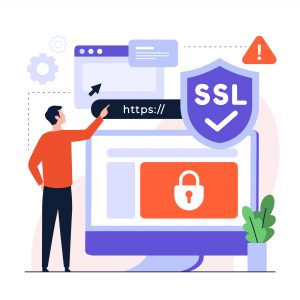
In the vast landscape of the internet, securing the right domain name for your online business is crucial. However, there exists a threat known as domain squatting, where individuals or entities register domain names associated with popular brands or trademarks with the intention of profiting from them. This article explores the dangers of domain squatting and provides strategies to prevent domain hijacking.
Understanding Domain Squatting
Domain squatting, also known as cybersquatting, involves the registration of domain names that resemble established brands or trademarks. Squatters aim to take advantage of the reputation and popularity of these brands, often with the intention of selling the domain back to the rightful owner at an exorbitant price.
The Dangers of Domain Squatting:
- Brand Dilution: Domain squatting can dilute a brand’s online presence and confuse potential customers. When visitors land on a squatter’s website, they may associate the misleading content with the legitimate brand, leading to reputation damage.
- Lost Traffic and Revenue: Squatters may redirect traffic from their registered domains to competing websites or display irrelevant ads. This can divert potential customers away from your business, resulting in lost revenue and diminished online visibility.
- Customer Trust and Data Security: If a squatter sets up a website that appears similar to the legitimate brand, unsuspecting customers may unknowingly provide personal information or make purchases on fraudulent platforms. This compromises customer trust and can lead to data breaches or financial losses.
Preventing Domain Squatting:
- Act Swiftly: Register your desired domain name as soon as possible. Procrastination increases the risk of someone else securing it before you. Regularly check for any domain name variations or misspellings associated with your brand.
- Monitor Expired Domains: Keep an eye on domain expiration dates, especially if you own multiple domains. Failing to renew a domain opens up opportunities for squatters to snatch it up. Set up reminders or enable auto-renewal to avoid accidental expiration.
- Trademark Protection: Register your brand name as a trademark to strengthen your legal position against domain squatting. Trademark protection can provide you with legal grounds to reclaim a squatted domain more effectively.
- Domain Backordering: Use domain backordering services provided by reputable domain registrars. These services allow you to express interest in acquiring a domain that is about to expire. If the domain becomes available, the registrar will attempt to secure it on your behalf.
- Legal Recourse: If you find that a squatter has registered a domain infringing on your brand, consult with a legal professional specializing in intellectual property law. They can guide you through the process of filing a domain dispute or taking legal action to regain control.
Domain squatting poses a significant threat to online businesses, potentially causing brand dilution, lost revenue, and compromised customer trust. By understanding the dangers of domain squatting and implementing preventive measures, such as swift domain registration, trademark protection, and legal recourse, businesses can safeguard their online presence and protect their brand integrity. Stay vigilant and proactive to prevent domain hijacking and maintain a strong online presence for your business.



